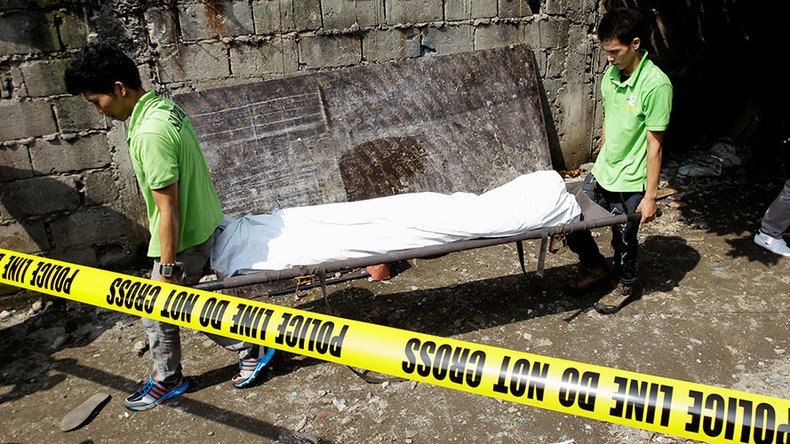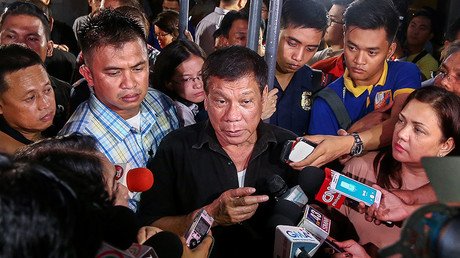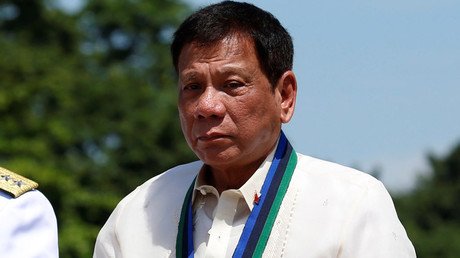465 slain in July: Drug pushers purged in Philippines after presidential plea

The Philippines president’s appeal to eliminate all drug-related suspects has so far reaped a bloody harvest of hundreds of victims. The criminal world is ready to pay over $1 million for Rodrigo Duterte’s head, but his popular support remains huge.
Statistics published twice a week in the national Philippine Daily Inquirer have counted 465 deaths of drug dealers, pushers and addicts, killed by vigilantes in July alone. This means that on average, 15 people have lost their lives extra-judicially every day for alleged links to drug trafficking.
Duterte, 71, launched his anti-drug campaign immediately after being sworn in on June 30.
Philippines president urges to 'go ahead & kill' drug addicts https://t.co/BFoArD60Tl
— RT (@RT_com) July 1, 2016
“If you know of any addicts, go ahead and kill them yourself as getting their parents to do it would be too painful,” Duterte said on July 1, a day after entering office. At the same time the president pledged to remain within the boundaries of the law.
“As a lawyer and former prosecutor, I know the limits of the power and authority of the president. I know what is legal and what is not. My adherence to due process and rule of law is uncompromising,” Duterte said.
After winning the presidential election in May with a landslide, Duterte estimated that some 100,000 criminals would die in the crackdown, promising to put an end to drug-related crime within six months.
Even before he entered office, the local drug lords offered over $1 million for the assassination of the new leader. In return, Duterte offered about $100,000 per drug lord's head.
Bounty war: Drug lords raise offer for Philippines leader’s head to $1,000,000 https://t.co/2dFEBx1P3epic.twitter.com/IpVwyVvhdT
— RT (@RT_com) June 10, 2016
The Human Rights Watch has published on Tuesday a letter signed by over 200 human rights groups and organizations, laying the blame for the killings on Duterte for “inciting” vigilantes to attack drug dealers.
The letter demands the UN Office on Drugs and Crime (UNODC) and the International Narcotics Control Board (INCB) to “state unequivocally that such actions do not constitute acceptable drug control measures.”














